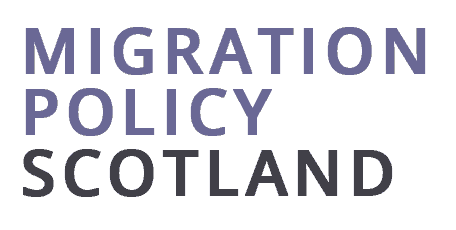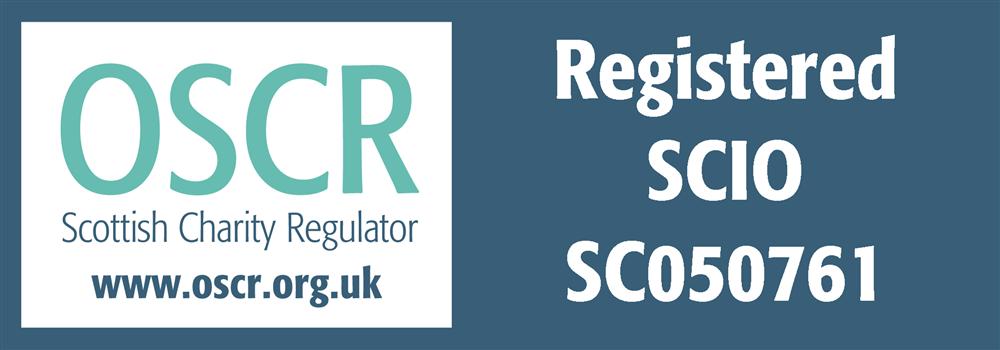Blog by Rebecca Kay, MPS Senior Researcher
The Windrush scandal has negatively impacted the lives of tens of thousands of people across the UK. This has been well publicised in the media and in public life, but its extent and impacts in Scotland are less well understood. In England, law clinics, grassroots advocacy organisations, funding bodies and race equality organisations have come together to provide support and advice to those affected, to campaign and lobby for better responses and to hold government to account.
In 2018 the home office acknowledged the harm that had been caused to members of what became known as the ‘windrush generation’ by hostile environment policies which required proof of immigration status for access to public services, housing, jobs etc. In 2019 two distinct schemes were launched to compensate those affected and to prevent further recurrences. The Windrush Compensation Scheme exists to compensate members of the Windrush generation and their families whose lives were disrupted because they could not prove lawful status in the UK. The Windrush Scheme for Documentation provides people of any nationality who were lawfully resident before 31st December 1988 the opportunity to apply for physical proof of their right to reside and work in the UK.
On 31st October 2022, MPS organized an event aimed at exploring how best to ensure that the potential of the Windrush Schemes is maximised in Scotland. For this to happen, we sought to raise awareness of the Schemes among relevant individuals and organisations in Scotland and to spark discussions about effective ways of improving access to advocacy and advice. We hope that the event will provide new opportunities for organisations to connect within Scotland and beyond and to work towards ensuring that the full range of eligible people in Scotland are aware of their entitlement to compensation and able to find the support and advice they need to claim it.
The event was held online so that we could maximise input from those beyond Scotland with more extensive experience of work in this area, as well as hearing from organisations already working on this issue within Scotland. We were delighted to welcome speakers from Citizens Rights Project, and Fife Centre for Equalities to provide a Scottish perspective, and to hear about the wealth of experience and expertise already built up in England from Action for Race Equality and The Windrush Justice Clinic.
Our first speaker was Pawel Kopec from Citizens Rights Project (CRP). He told us about their scoping project, funded by the Home Office, and outreach work to try and raise awareness of the schemes in Scotland. CRP have been working hard to reach out to communities in Scotland through online webinars, contact with community organisations and charities and writing to care homes, churches and community centres. He explained some of the challenges they are encountering including the wide distribution of potentially affected communities and individuals across Scotland, the need to build trust and therefore the importance of local organisations and communities working together. Elric Honoré from Fife Centre for Equalities (FCE) went next and spoke about research they had conducted in 2018 to scope local need for support and to provide a briefing for frontline staff about how changing immigration rules at the time were affecting commonwealth citizens. He stressed the need to raise awareness in Scotland that the Windrush scandal could affect people from all commonwealth countries who had arrived in the UK before 1971 and not only those from the countries of the Caribbean. In 2018 this was a population of some 21,000 people in Scotland, 838 of them in Fife. Elric explained that based on estimates from elsewhere in the UK, that 4% of that population would have likely had no passport, some 800-1000 people in Scotland are likely to have been at risk from the ‘hostile environment’ policies.
Indra Nauth from Action for Race Equality (ARE) went next, telling us about their involvement with the Windrush Justice Programme, which has been set up to address the issues of those impacted by the Windrush Scandal. ARE is responsible for distributing funds to Grassroots organisations across the UK providing advocacy support to Windrush victims. Grants of up to £22k are available across two years, through a simple and supported application process. Applications from Scottish organisations are welcome and an open tender round will begin in the new year. Indra was keen to stress that any group or organisation providing advocacy to victims of the Windrush scandal or helping them to navigate the compensation scheme should reach out to her for more information on the funding available by sending an email to hello@actionforraceequality.org.uk with ‘Windrush’ in the title.
The event closed with a presentation by Sharon Anthony-Tewkesbury (Southwark Law Centre) and Anna Steiner (King’s Legal Clinic) to tell us about the work of The Windrush Justice Clinic (WJC). They explained the WJC model which has brought together community and voluntary organisations, local law centres and university legal advice clinics to support people from Commonwealth countries who have been adversely affected by the Windrush scandal. The model they have developed allows WJC to provide holistic wrap around care and support drawing on the expertise and reach of different organisations. They are able to provide free independent legal advice through law centres and legal clinics, amplify the voices of their members through co-ordinated advocacy and evidence-based campaigns, and offer training, support and assistance to individuals and communities.
Discussions during the event showed a clear need for more concerted and coordinated work on this issue in Scotland. The Windrush Justice Clinic model is certainly of interest and all speakers from both WJC and ARE were eager for contact from Scottish organisations and to extend the reach of their own work to Scotland. CRP are continuing their Scotland-wide scoping work in this field and are keen to collaborate with others and FCE expressed an interest in returning to some of their earlier pioneering engagement in this area. MPS is happy to help facilitate further developments and support dialogue between interested groups. If you are interested in getting involved please email: info@migrationpolicyscotland.org.uk
For updates on this and other areas of our work, please sign up to our monthly newsletter here.


